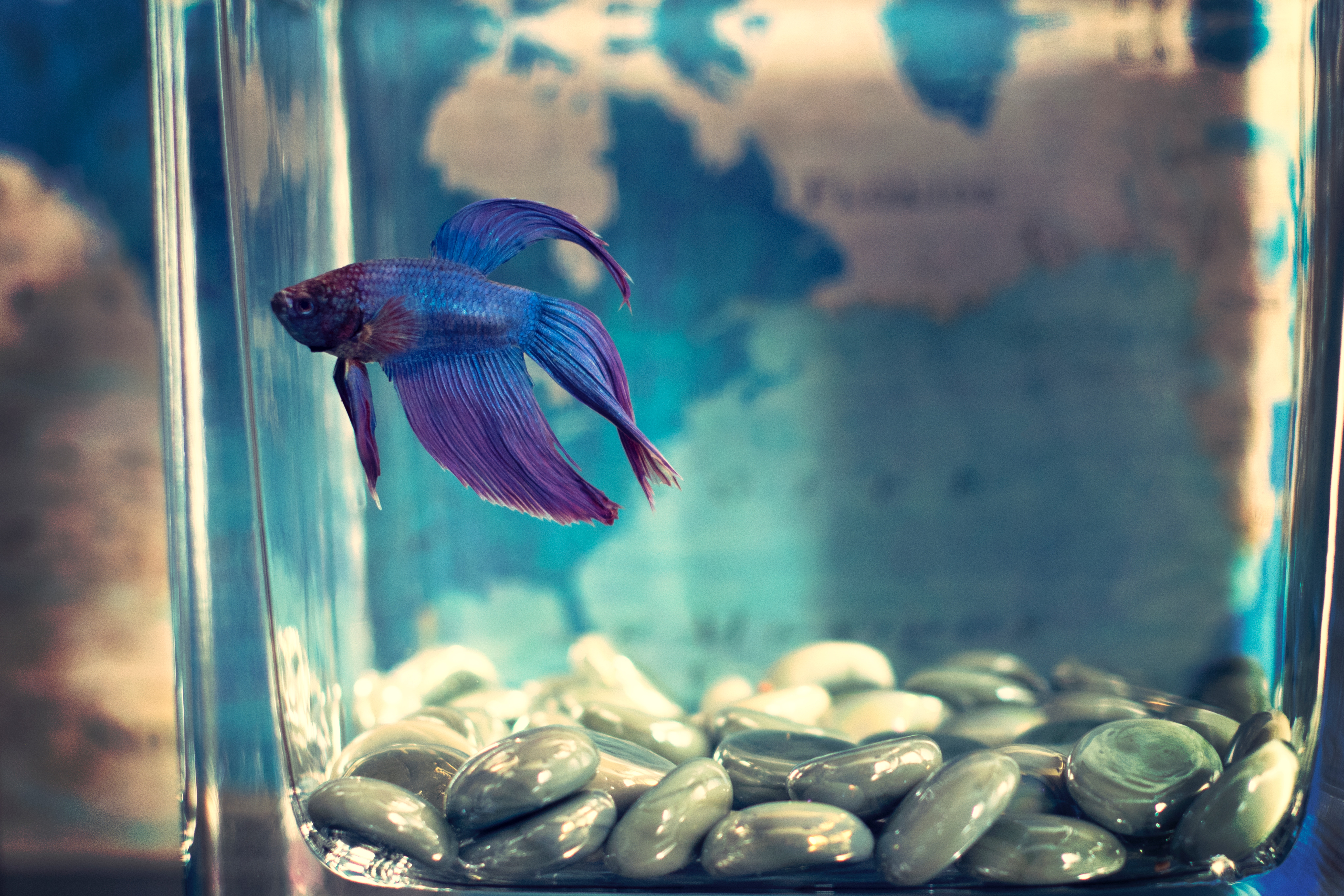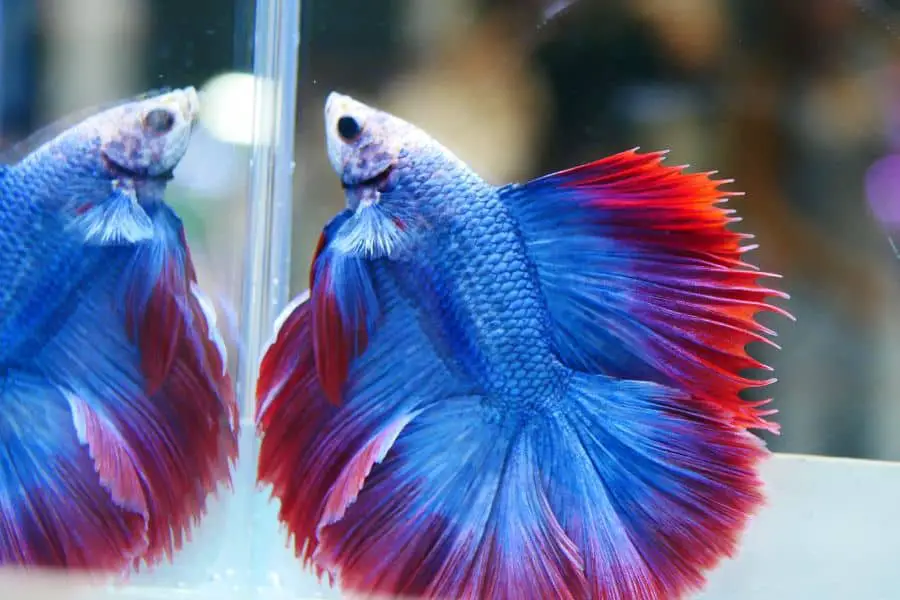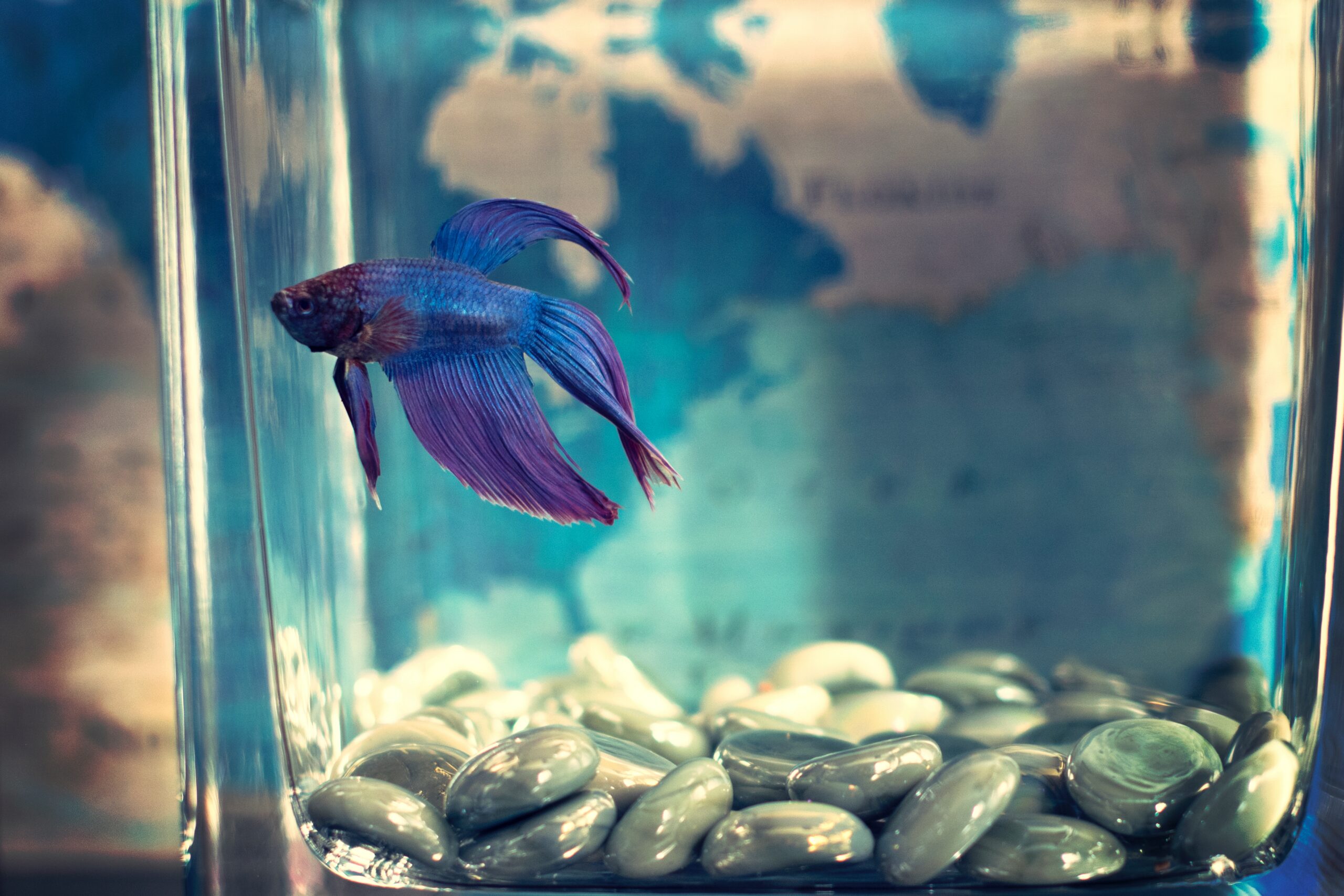Are you a proud owner of a Betta fish, but unsure of how long they can survive without food? Well, you’re not alone. Many fish owners are left puzzled when it comes to feeding their Betta fish. The good news is that Betta fish can survive up to two weeks without food, but there are a few important things to consider before leaving your fish unfed.
Betta fish can survive for up to two weeks without food. However, it is important to note that this is not ideal for their health and well-being. It is recommended to feed your betta fish small portions once or twice a day. Overfeeding can also be harmful to their health, so it’s important to find the right balance.

How Long Can a Betta Fish Go Without Food?
Betta fish, also known as Siamese fighting fish, are a popular species of freshwater fish. They are known for their vibrant colors and long, flowing fins. Betta fish are relatively easy to care for, but one of the most common questions asked by new owners is, “How long can a betta fish go without food?” In this article, we will explore the answer to this question and provide some helpful tips for feeding your betta fish.
1. Betta Fish and Their Feeding Habits
Betta fish are carnivorous and require a diet that is high in protein. In their natural habitat, betta fish feed on insects, larvae, and small crustaceans. In captivity, betta fish can be fed a variety of foods, including pellets, frozen or live foods, and even vegetables.
It is important to note that betta fish have a small stomach and should be fed small amounts of food 2-3 times per day. Overfeeding can lead to health problems such as constipation and bloating.
Benefits of Feeding Betta Fish a Balanced Diet
Feeding your betta fish a balanced diet has many benefits, including:
– Promoting healthy growth and development
– Boosting the immune system
– Maintaining a healthy weight
– Enhancing the color and vibrancy of their fins
2. How Long Can Betta Fish Go Without Food?
Betta fish can go without food for up to 14 days, but it is not recommended to starve your fish for this long. Betta fish, like all animals, require food to survive and thrive. Going without food for an extended period of time can weaken their immune system and lead to health problems.
VS. Overfeeding Betta Fish
Overfeeding your betta fish can lead to health problems such as:
– Constipation
– Bloating
– Obesity
– Poor water quality
It is important to find a balance between feeding your betta fish enough food to keep them healthy and avoiding overfeeding.
3. How to Feed Your Betta Fish
Feeding your betta fish is easy and can be done in a few simple steps:
1. Choose a high-quality betta fish food that is appropriate for your fish’s size and age.
2. Feed your betta fish small amounts of food 2-3 times per day.
3. Remove any uneaten food from the tank after a few minutes to prevent it from polluting the water.
Tips for Feeding Betta Fish
– Avoid overfeeding your betta fish.
– Offer a variety of foods to keep their diet balanced.
– Use a feeding ring to prevent the food from floating away.
– Soak freeze-dried or frozen foods in tank water before feeding to prevent digestive issues.
4. What to Do if You Need to Leave Your Betta Fish Alone for a Few Days
If you need to leave your betta fish alone for a few days, there are a few things you can do to ensure they stay healthy:
– Feed your betta fish a little extra food before you leave.
– Use an automatic fish feeder to dispense small amounts of food while you are away.
– Ask a friend or family member to check on your betta fish and feed them if needed.
Benefits of Using an Automatic Fish Feeder
Using an automatic fish feeder has many benefits, including:
– Ensuring your fish are fed on a regular schedule.
– Preventing overfeeding and food waste.
– Maintaining a healthy diet for your fish even when you are not home.
5. Signs Your Betta Fish is Hungry
It can be difficult to tell when your betta fish is hungry, but there are a few signs to look out for:
– Your betta fish may become more active and swim around the tank more.
– They may start to beg for food by swimming to the surface when you approach the tank.
– Your betta fish may nip at your fingers when you put your hand in the tank.
Using a Feeding Schedule
Using a feeding schedule can help you keep track of when and how much to feed your betta fish. It can also help prevent overfeeding and underfeeding.
6. How to Choose the Right Betta Fish Food
Choosing the right betta fish food can be overwhelming, as there are many options available. Here are some things to consider when choosing a betta fish food:
– Look for a high-quality food that is specifically designed for betta fish.
– Choose a food that is appropriate for your fish’s size and age.
– Consider the ingredients and nutritional value of the food.
Benefits of Choosing the Right Betta Fish Food
Choosing the right betta fish food has many benefits, including:
– Promoting healthy growth and development
– Boosting the immune system
– Enhancing the color and vibrancy of their fins
– Preventing health problems such as constipation and bloating
7. What Not to Feed Your Betta Fish
There are some foods that you should avoid feeding your betta fish, including:
– Raw meat or fish
– Bread
– Candy or sweets
– Processed or fried foods
These foods can be harmful to your betta fish and lead to health problems.
Using a Food Chart
Using a food chart can help you keep track of the foods that are safe and healthy for your betta fish to eat. It can also help you avoid feeding your fish foods that are harmful or unhealthy.
8. How to Store Betta Fish Food
Properly storing your betta fish food is important to ensure it stays fresh and retains its nutritional value. Here are some tips for storing betta fish food:
– Store the food in a cool, dry place.
– Keep the food in its original packaging or a sealed container.
– Avoid exposing the food to moisture or sunlight.
Using a Food Container
Using a food container can help you keep your betta fish food fresh and prevent it from going stale or losing its nutritional value.
9. How to Handle Betta Fish Food
Handling betta fish food properly is important to prevent contamination and ensure your fish stay healthy. Here are some tips for handling betta fish food:
– Wash your hands before and after handling the food.
– Use a clean scoop or spoon to measure the food.
– Avoid touching the food with your hands.
Using a Scoop or Spoon
Using a scoop or spoon to measure your betta fish food can help prevent contamination and ensure you are feeding your fish the correct amount.
10. Conclusion
In conclusion, betta fish can go without food for up to 14 days, but it is not recommended to starve your fish for this long. Feeding your betta fish a balanced diet is important for their health and wellbeing. Use a feeding schedule, choose the right betta fish food, and avoid overfeeding to keep your fish healthy and happy.
Frequently Asked Questions
Here are some common questions about how long a betta fish can go without food:
1. How long can a betta fish survive without food?
A betta fish can survive for up to two weeks without food. However, this is not recommended as it can lead to health problems and a weakened immune system. Betta fish are carnivorous and need a diet rich in protein to stay healthy.
If you plan on being away from your betta fish for an extended period of time, it is best to arrange for someone to feed them or invest in an automatic feeder to ensure they are getting the proper nutrition.
2. Can a betta fish be overfed?
Yes, a betta fish can be overfed. Overfeeding can lead to obesity, bloating, and constipation, which can cause health problems. It is important to feed your betta fish a small amount of food once or twice a day, and to remove any uneaten food after a few minutes.
It is also important to feed your betta fish a varied diet that includes pellets, frozen or live food, and occasional treats like bloodworms or brine shrimp.
3. What is the best type of food for a betta fish?
The best type of food for a betta fish is one that is high in protein and specifically designed for bettas. Pellets are a good choice as they provide a balanced diet and can be easily portioned. Frozen or live food like bloodworms or brine shrimp can also be fed occasionally as a treat.
It is important to avoid feeding your betta fish human food or food that is not specifically designed for them, as this can lead to health problems.
4. How often should a betta fish be fed?
A betta fish should be fed once or twice a day, with a small amount of food each time. It is important not to overfeed your betta fish, as this can lead to health problems. Remove any uneaten food after a few minutes to avoid overfeeding.
If you are feeding your betta fish pellets, make sure to soak them in water for a few minutes before feeding to prevent bloating and constipation.
5. Can betta fish go without food while on vacation?
While betta fish can survive for up to two weeks without food, it is not recommended to leave them without food while on vacation. It is best to arrange for someone to feed your betta fish or invest in an automatic feeder to ensure they are getting the proper nutrition.
Leaving your betta fish without food for an extended period of time can lead to health problems and a weakened immune system, which can make them more susceptible to disease and infection.

HOW LONG CAN BETTA FISH SURVIVE WITHOUT FOOD?
In conclusion, betta fish can go without food for a surprisingly long time. However, it is important to note that this does not mean they should be starved. Betta fish, like all living creatures, require a balanced and nutritious diet to maintain optimal health and wellbeing.
Owners should strive to provide their betta fish with a varied and nutritious diet that includes high-quality pellets, frozen or live foods, and occasional treats. Additionally, it is important to avoid overfeeding, as this can lead to health issues such as bloating and constipation.
In summary, while betta fish can survive for extended periods without food, it is crucial to prioritize their nutritional needs and provide them with a healthy and balanced diet. By doing so, owners can ensure that their betta fish remain happy and healthy for many years to come.

